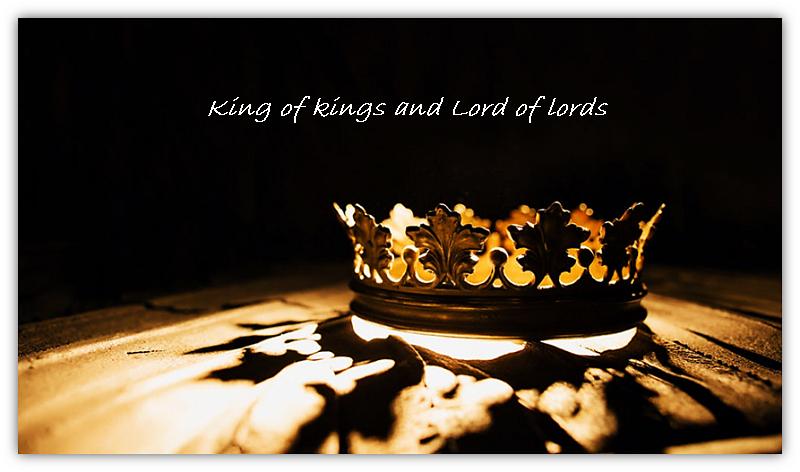Christ's Kingdom
Christ's Kingdom

The kingdom of God is His rule and reign over all things; it arises from His nature as King (Ps. 99:1-5; 1 Tim. 1:17). God is staggeringly majestic (Isa. 6:1-7). He is the incomparable King of glory, all-sufficient, controlling life and death, infinitely holy, a boundless ocean of love (2 Sam. 2:2-10; Ps. 136: 1-3). God created the world in order to make a kingdom for His Son (Heb. 1:2). Since Christ is the heir of the world, His kingdom will gather all nations together through the gospel (Matt. 24:14).
Christ brings His kingdom step by step in history. God’s promise of the universal extension of Christ’s kingdom (Dan. 7:13-14) is realized through progressive fulfillment every time Christ acts in the world for salvation and judgment. The kingdom of Christ opposes and overcomes the kingdom of Satan (Luke 11:18-22). Satan attempted to set up a rival kingdom, usurping the Creator’s dominion on earth (Gen. 3:1-6; Job 1:7; cf. Isa. 14:12-14). Christ took up His office immediately upon the fall of man (Gen. 3:15), and whenever God appeared to men, it was the Son who came (John 1:18). David was the greatest personal type of Christ (Ezek. 34:24), and the establishment of the kingdom of David and his sons was God’s planting of the root from which the messianic Branch would come (2 Sam. 7:12-14; Isa. 11:1; Jer. 23:5). The Old Testament as a whole was preparation for the arrival of the kingdom, when the great King and Savior came in the flesh (Isa. 9:6-7).
The kingdom springs from Christ’s work in dying and rising again. By His death on the cross, Christ conquered the powers of evil, slaying the spiritual Goliath with his own sword (John 12:31; 16:11; Col. 2:15; Heb. 2:14). Yet Christ’s redemption is not first and foremost a victory over Satan, but a purchase (Mark 10:45); His humiliation was the price necessary to satisfy God’s law (Gal. 3:10, 13; 4:4-5). The kingdom officially began after Christ’s resurrection, when He ascended into heaven, sat down at God’s right hand, and poured out the Spirit to empower His church to take the gospel to all nations (Acts 1: 6-9; 2:23-36).
The essence of Christ’s redemptive kingdom is the Spirit (Isa. 11:1-2). The Father gave the Redeemer, the Son purchased redemption, and the Spirit is the blessing purchased (Gal. 3:13-14; 4:4-6) – trinitarian redemption. In His Spirit, the exalted King is conquering the devil on earth, especially in converting and sanctifying the elect (Rom. 5:17, 21; 14:17; Rev. 17:14). Conversion delivers a sinner out of the kingdom of the devil and sin, and translates him into the kingdom of Christ (Rom. 6:14, 17; Col. 1:13).
The context of the kingdom is the church, where Christ’s royal power operates (Matt. 16:16-19; 18:20; 1 Cor. 4:19-21; 5:3-5; 2 Cor. 13:1-4). Christ rules His people externally through His Word and officers (John 18:36-37; Eph. 4:10-11), and internally by the influences of His grace, which make His people willing to obey by His power (Ps. 110:3). When Christ revives His church, believers rejoice to see the goings of their God and King in His sanctuary (Ps. 68:24). However, not all in the visible kingdom of Christ, the church, belong there; some are like bad fish caught in the net, which will be thrown away in the final judgment (Matt. 13:47-50).
God promised to extend Christ’s kingdom over every nation (Ps. 72:8-11). The satanic kingdoms of this world and its false religions will all ultimately fail (Dan. 2:44; 7:9-14), and Christ will reign as “King of kings and Lord of lords” (Rev. 19:16). The kingdom will reach its ultimate realization in the happiness and holiness of eternal life when Christ returns in glory (Matt. 13:43). In one sense, Christ’s mediatorial work will be done and He will hand over the kingdom to His Father (1 Cor. 15:28). However, in another sense He will reign as never before in the hearts of His people, who will be with Him to behold the King in His glory to their eternal delight (Isa. 33:17; John 17:24; Titus 2:13).

Add new comment